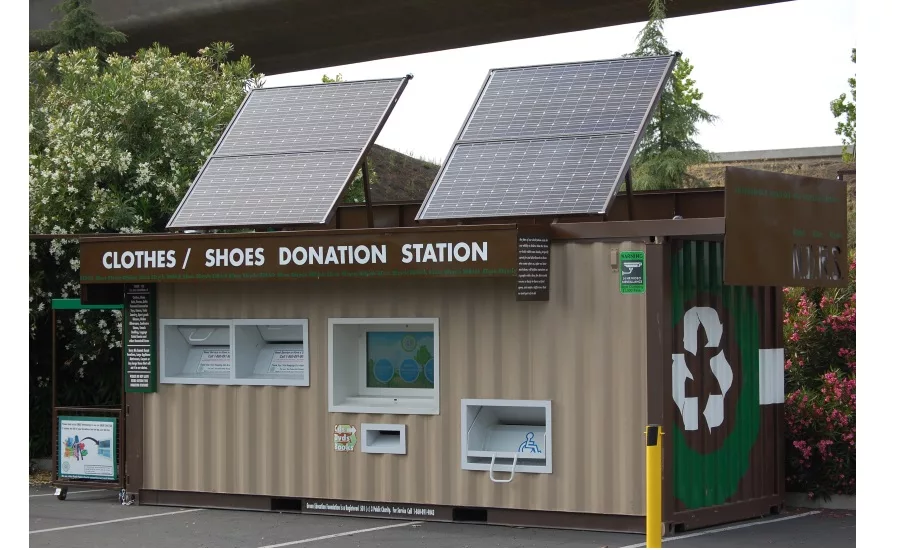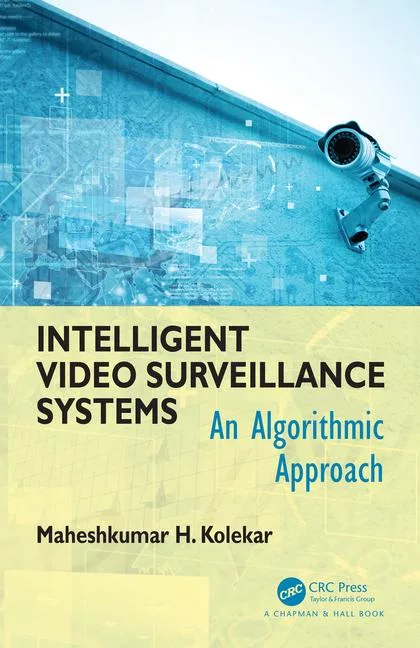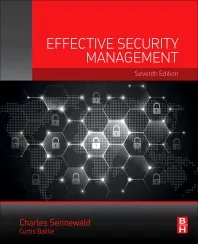7th Generation Recycling: a case study in cloud and video surveillance

With four locations in Southern and Northern California, Texas and New Jersey, 7th Generation Recycling is an organization dedicated to protecting the environment and supporting local communities. Through their partnerships with non-profits, schools and community groups, they strive to accomplish the goal of recycling clothing, shoes and household textiles. Additionally, they strive to assist in funding local programs and ensuring their recycling clothing benefits people in their area communities, as well as those in third world countries.
Founded in 2006 by local Bay Area entrepreneurs, and a chairwoman of a San Francisco Bay Area Native American Tribe, the philosophy behind 7th Generation is based on the values of the indigenous peoples – a belief that Earth’s current inhabitants are responsible for caring for the planet, and in doing so, thinking about the impact of their actions on future generations.
7th Generation works towards this goal by recovering textiles and clothing, thus providing both environmental and economic benefits. In addition to providing assistance to those in need, recycling unwanted clothing, linens and other textiles reduces the amount of landfill waste. Going beyond just recycling, 7th Generation also works with local organizations to provide recycling education to surrounding communities.
Challenges
When 7th Generation Recycling was first founded, their goal was to recycle purely textiles, clothing that couldn’t be used and other fiber plants that could be converted to fiber. However, about 12 years ago, the organization evolved into a larger company that collected from metal boxes placed throughout communities, while also working with housing and other organizations on collections.
The larger the company grew, the more issues they found with collections at remote locations – mainly with vandalism and theft of donations – the mess that would be created around donation boxes was an issue for both the city and property owners. Additionally, they had permitting issues within certain municipalities. Taking this into account, 7th Generation knew they had to develop a larger, remote donation station that could be monitored. One solution was to partner with a local non-profit that would collect donations and use the funds to educate children on the benefits of recycling and sustainability. Upon entering this partnership, the organization tasked 7th Generation with building larger recycling centers that could be reused and easily monitored.
Because the donation stations would not be located within a typical building, the main concern for 7th Generation was having a donation unit run on as little power as possible, as well as the least amount of bandwidth and no large NVR units. Outside of sustainability concerns, they wanted a security system that could act as a deterrent to tagging and other acts of vandalism, while enabling managers to respond immediately to attempted acts of theft or donations left outside the unit.
The Solution
Before they could properly monitor their 96 donation stations, 7th Generation needed to build a unit large enough to place solar panels on top to power a security system and at the same time to hold a large amount of donated clothing. To achieve this, they repurposed 20-foot shipping containers. Each unit is artistically designed and modified with a chute system where items are deposited, while housing solar panels on top.
While refurbishing each shipping container requires them to be more involved, engineering wise, than it would be to build something from the group up, it’s within the mission of 7th Generation to reuse items in the most sustainable way possible.
Each shipping container is equipped with solar panels, two surveillance cameras, and a cellular network to provide internet connectivity. The off-the-grid configuration works because each IP camera connects directly to Tyco Cloud, a remote video surveillance management system.
By leveraging Tyco Cloud they gain remote management capabilities and bypass the need for an onsite NVR or DVR, which would consume a lot of power.
“We were lucky to find Tyco Cloud from the beginning,” said Mike Nijmeh, co-owner of 7th Generation Recycling. “It’s ability to run off little power, while not using much data or bandwidth was perfect for what we needed.”
Due to Tyco Cloud’s plug-and-play capabilities, 7th Generation is able to assemble a new unit, install the solution using their own personnel, and managers can immediately begin 24/7 monitoring - whether from desktop applications or any mobile device.
Nijmeh said one of their number one concerns is to keep the area surrounding each donation unit clean. An important feature that helps them solve this issue, is the ability to view surveillance footage in real-time. When donations are left outside of a unit, property managers can dispatch a driver to the scene immediately.
Another useful feature for 7th Generation is the VMS’ Hyper View capabilities. This feature enables 7th Generation’s monitoring center to search through video from up to 100 cameras at the same time in 60 seconds. With 96 stations and 450 cameras, it’s imperative that they be able to review footage, such as vandalism or theft attempts, instantly. Hyper View allows them to scrub through recorded video, highlight events to find what they’re looking for and then instantly go to full HD video with a single click.
“Tyco Cloud enables us to get a report on service calls, which is distributed on a daily basis,” said Ken Nijmeh co-owner of 7th Generation Recycling. “This allows us to track every event and respond accordingly. Another important aspect is that the system allows us to keep the area clean. As soon as something is left outside we can dispatch a driver to pick it up.”
While the cloud-based surveillance system does act as a deterrent, 7th Generation also uses the data to make informed decisions about the frequency of when they should service units to prevent theft. During a year-long test of the system, they were able to further identify a need for outfitting each unit with rotating bars, to deter individuals from climbing into the chute.
“To me, it was all about the simplicity, scalability and organization of the Tyco Cloud system,” said Mike
The Future
Ken and Mike said they are constantly trying to improve and evolve and are hoping to double their donation units in the next year – now that their security issues have been addressed. They’re hoping to grow their business further towards the East Coast, as they currently only service as far as Maryland.
Additionally, they are interested in testing out the Motion View feature, which will help reduce false alerts when someone is at a donation station.
Looking for a reprint of this article?
From high-res PDFs to custom plaques, order your copy today!







